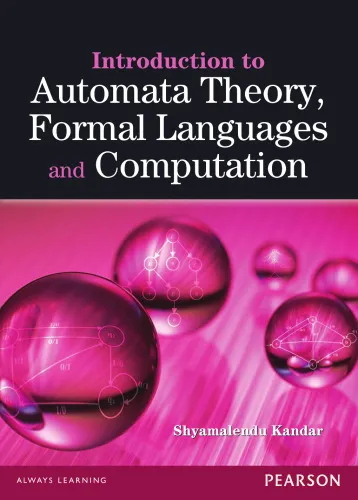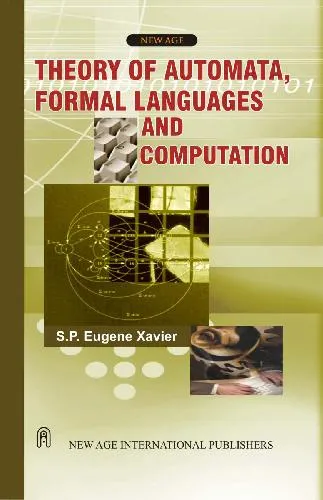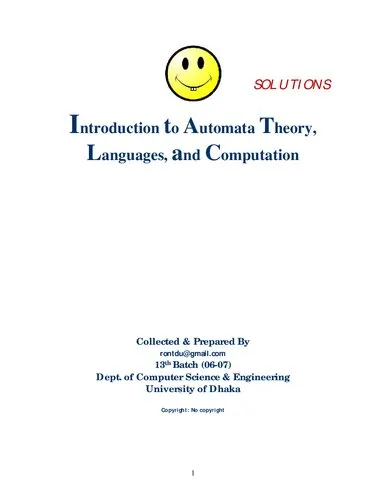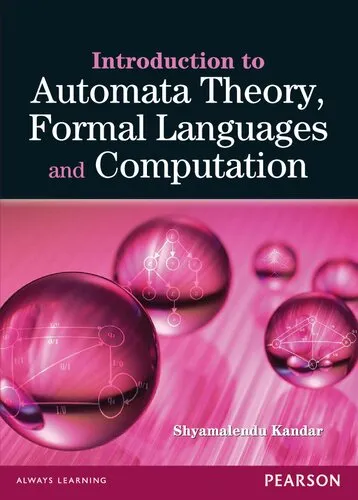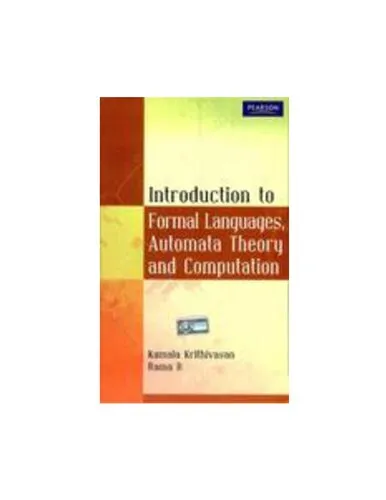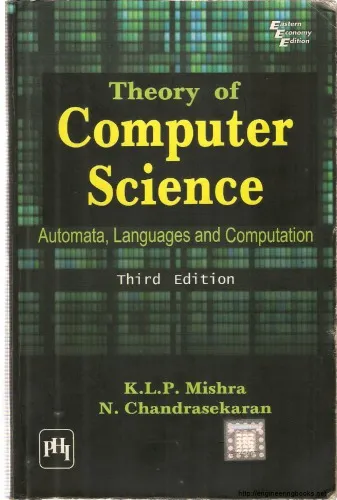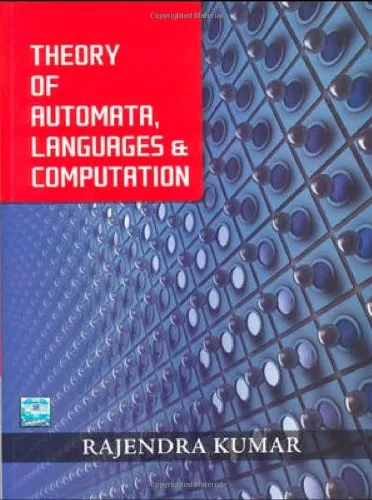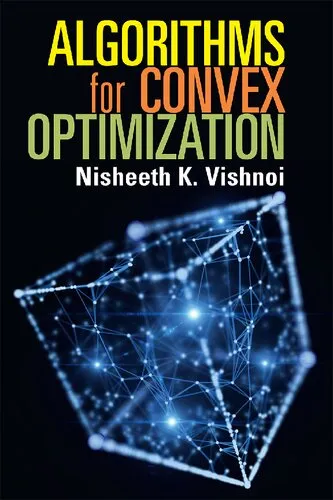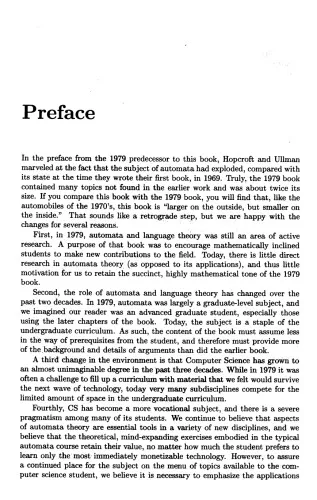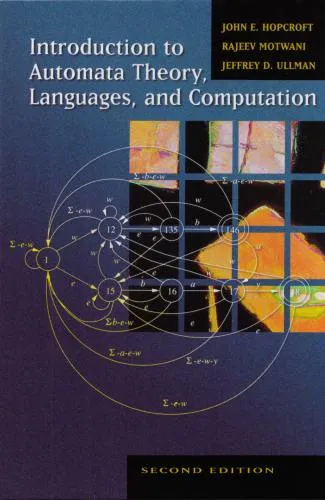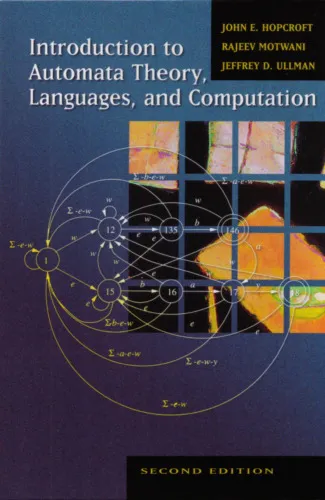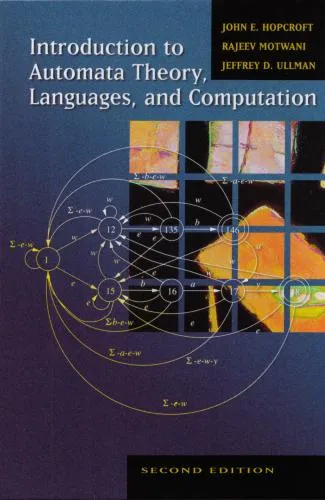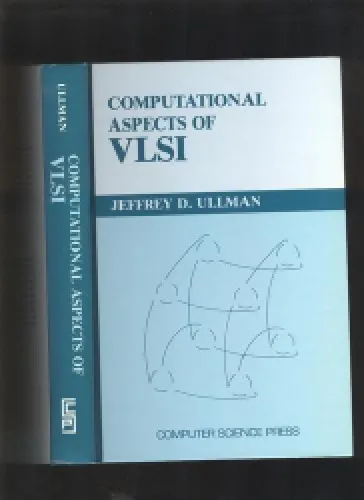Introduction to Automata Theory, Formal Languages and Computation
4.3
Reviews from our users

You Can Ask your questions from this book's AI after Login
Each download or ask from book AI costs 2 points. To earn more free points, please visit the Points Guide Page and complete some valuable actions.Related Refrences:
Analytical Summary
The book Introduction to Automata Theory, Formal Languages and Computation stands as a foundational text in the study of theoretical computer science. Designed to serve learners from academic novices to seasoned professionals, it bridges the gap between abstract mathematical frameworks and their practical computational applications.
Authored with precision and clarity, the volume navigates through the core aspects of automata theory, exploring deterministic and non-deterministic models, finite automata, pushdown automata, and Turing machines. It also delves deeply into the syntactic and semantic elements of formal languages, offering readers a concise but comprehensive roadmap to understanding grammars, derivations, and parsing techniques.
The integration of computation theory reinforces the relevance of these concepts in analysing algorithmic capabilities, computational complexity, and problem-solving boundaries. Rather than treating subjects in isolation, the text consistently links theoretical constructs to real-world computational outcomes.
Information unavailable regarding its original publication year due to no reliable public source; however, its continued adoption in academic curricula demonstrates its enduring authority.
Key Takeaways
Readers encountering this work emerge with a logically cohesive understanding of how automata theory, formal languages, and computation intertwine to define the mathematical limits of problem-solving.
The structured progression from simple automata to the complexities of Turing-complete systems helps learners internalize abstract concepts through progressively challenging scenarios.
A balanced emphasis on formal definitions, illustrative examples, and problem sets ensures a dual focus on conceptual theory and applied reasoning, making it suitable for both examination preparation and research foundation.
By mastering content from this text, readers are equipped to evaluate computational processes critically, recognize decidability constraints, and appreciate the elegance of formal structures.
Memorable Quotes
The beauty of automata theory lies in its ability to abstract computation into pure logic and structure. Unknown
Formal languages are the grammar of thought for any machine capable of computation. Unknown
Understanding computation theory is to understand the boundaries of the possible and the impossible. Unknown
Why This Book Matters
In an era where computation permeates every discipline, grasping the theoretical foundations is no longer optional—it is essential.
The primary value of Introduction to Automata Theory, Formal Languages and Computation lies in its disciplined approach to intricate concepts. The text empowers readers to conceptualize and formalize problems with mathematical precision, a skill highly sought after in academic research and advanced industry roles.
Secondary keywords such as “Automata Theory” and “Computational Complexity” surface naturally throughout the work, underscoring its relevance to topics including artificial intelligence, compiler design, and algorithm analysis. By demystifying these interconnected subjects, the book serves as a durable reference for career-long learning.
Inspiring Conclusion
The journey through Introduction to Automata Theory, Formal Languages and Computation invites the reader to engage not merely with knowledge, but with the very framework of computational thought.
Whether you are a student embarking on theoretical computer science, an academic refining lecture material, or a professional seeking deeper analytical tools, this text offers the scaffolding needed to build enduring competence. By integrating Automata Theory and Computational Complexity into a coherent narrative, it enables you to digest challenging abstractions with confidence.
Now is the perfect opportunity to read, share, and discuss the insights this book offers. Let its disciplined exploration guide you toward mastering the elegant and profound foundations of computation.
Free Direct Download
You Can Download this book after Login
Accessing books through legal platforms and public libraries not only supports the rights of authors and publishers but also contributes to the sustainability of reading culture. Before downloading, please take a moment to consider these options.
Find this book on other platforms:
WorldCat helps you find books in libraries worldwide.
See ratings, reviews, and discussions on Goodreads.
Find and buy rare or used books on AbeBooks.
1046
بازدید4.3
امتیاز0
نظر98%
رضایتReviews:
4.3
Based on 0 users review
Questions & Answers
Ask questions about this book or help others by answering
No questions yet. Be the first to ask!
